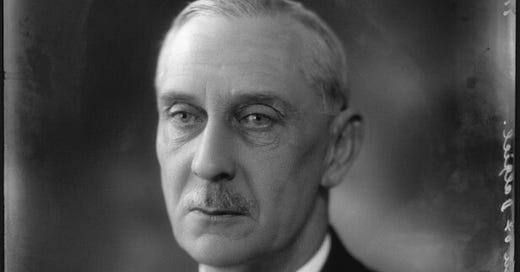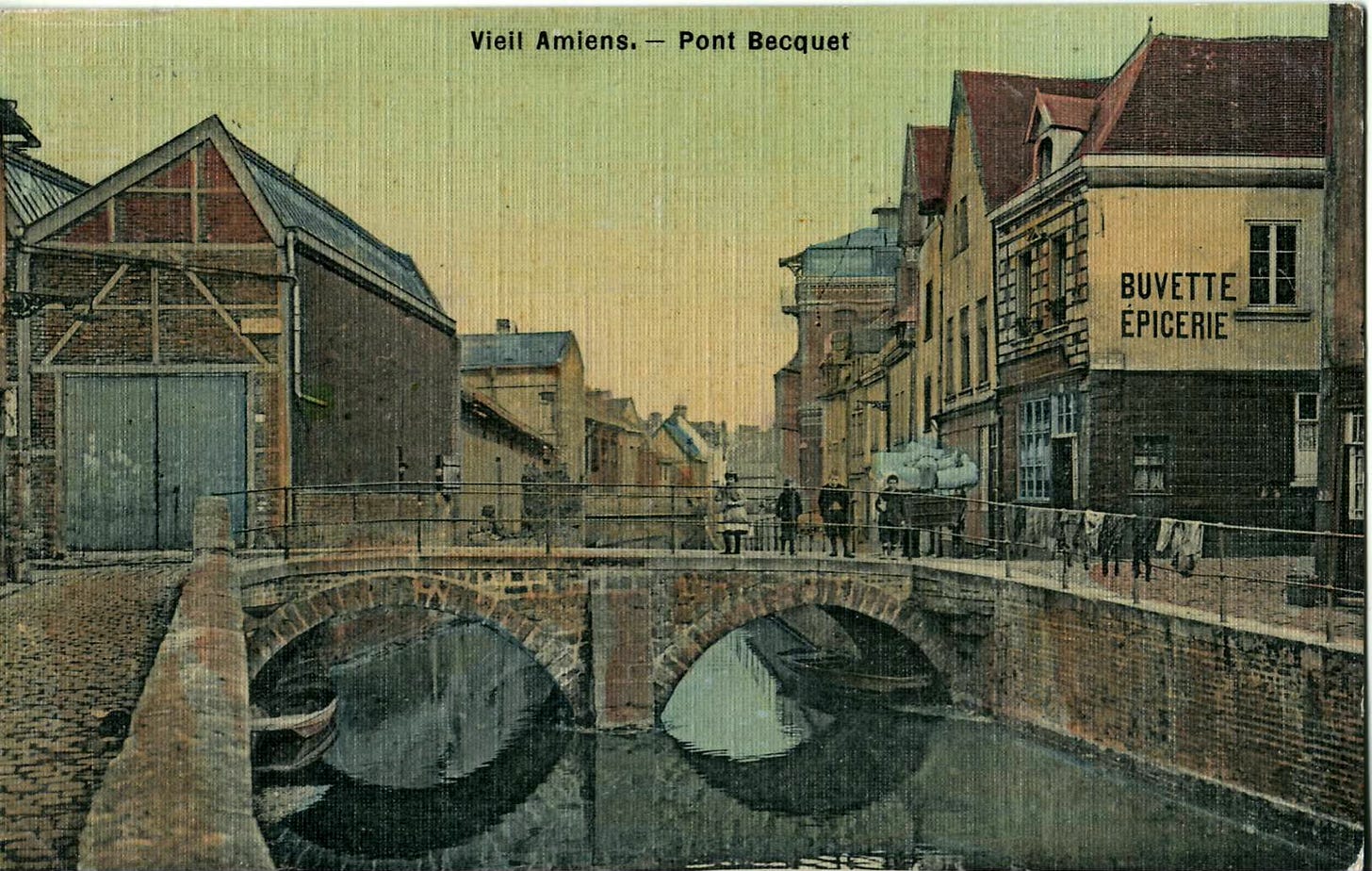Duped by the King's Lord in Waiting
A private detective was sent on a hectic and short trip to France in 1911 - but his client's wife and her lover were one step ahead of him...
I wrote about the Butlers in a previous article, where three generations of the family had all worked as private detectives; in the 1920s, both Reuben Butler and his son Percival had been employed at Littlechild's private detective agency. Today, I'm looking at a case that involved the talents of the second generation of Butler detectives - Reuben Butler.
In 1911, Colonel the Honourable William Arnold Webster Lawson brought a petition for divorce, wanting to end his marriage with Sybil Mary Lawson. This was a scandalous divorce that made headlines because of the key players in the case. The titled Lawson was arguing that his wife had committed adultery with Lord (Gavin George) Hamilton of Dalzell, the former Lord in Waiting to King Edward VII.
Lord Hamilton of Dalzell, pictured 18 years after the infamous divorce case. Photo ©️ National Portrait Gallery (NPG x124725) and used under a creative commons licence
William Lawson was the 48-year-old second son of Lord Burnham. Both he and Lord Hamilton had been at Eton before attending the Royal Military Academy at Sandhurst. Both men had also served in the Scots Guards. Lawson had served in the Boer Wars with the Imperial Yeomanry, being a Lieutenant-Colonel with them. Lord Hamilton had been a lieutenant in the Scots Guards but, since inheriting his title from his father in 1900 had owned around 2500 acres of land near Motherwell, Lanarkshire. He had never married.
The lady at the heart of the case, Sybil Lawson, was the eldest daughter of the late Lieutenant General Sir Frederick Marshall of the 2nd Life Guards. This was, then, a military affair, with Sybil marrying Lawson back in 1887. The couple had had four children, two of whom were now adults, who had been brought up in Melton Mowbray, Leicestershire. In the years prior to the Great War, a friendship between Sybil and Lord Hamilton had sprung up, one that became progressively more intimate.
By the start of 1910, Sybil was asking her husband if she could have her own house in London, no longer wanting to live with him. Lawson realised that the marriage had failed, and agreed to let his wife take possession of their flat in Hyde Park Place, also giving her a 'substantial' allowance. The couple never formally separated - they did not go to court for a judicial separation - but they now lived apart.
However, they were still legally married, and by the autumn of 1911, Lawson had decided to start monitoring his wife. He employed the 51-year-old private detective Reuben Butler who tracked her; he was accompanied by Edward Rowlands, Colonel Lawson's butler. On 20 October, the men saw Sybil leave her Hyde Park flat at 2pm, taking a cab to Charing Cross Station, where she met Lord Hamilton. They then took the train to Folkestone, and then the boat to Boulogne, before proceeding to Amiens.
Amiens, where the lovers headed to - followed by a private detective and a butler… (photo: Claude_villetaneuse)
Butler and Rowlands followed them all the way. They saw the couple go into the Hôtel de l'Univers together, where they spent a night as husband and wife (albeit in a suite of connecting rooms), before returning to London the next day. Butler and Rowlands followed them all the way back from Amiens to Calais, and then Calais to London. The two men had done a marathon journey in 24 hours. However, Butler had also been duped. Sybil and her lord's travels were a deliberate attempt to goad Lawson into seeking a divorce, for on their return, Sybil Lawson asked her solicitors to send Colonel Lawson a letter:
"We are directed to say that if you will inquire at the Hôtel de l'Univers, Amiens, you will find such evidence as you may require."
Sybil wanted a divorce because as a separated wife, she was solely dependent on her husband for money, and she felt that this meant lifelong loneliness and isolation for her, unable to marry anyone else. Her husband had also insisted on her children remaining with him. She and her 'friend of upwards of 12 years', Lord Hamilton, had decided to therefore offer evidence to Lawson to enable him to get a divorce, and, Sybil wrote to him (in a letter enclosed with her solicitor's), "I ask you to do this as quickly and as quietly as possible."
Her wish was granted. Edward Rowlands was charged with ensuring that Sybil Lawson and Lord Hamilton were served with divorce papers. Colonel Lawson duly got a decree nisi, but also got custody of the two underage Lawson children. Now free, Sybil immediately married Lord Hamilton. Their marriage survived until her death in 1933.
As for Reuben Butler, he had been working as a private detective for decades, having worked his way up from a clerk position. He would continue to work on other cases until at least 1939 - well after the divorce of the Lawsons had been forgotten about.





